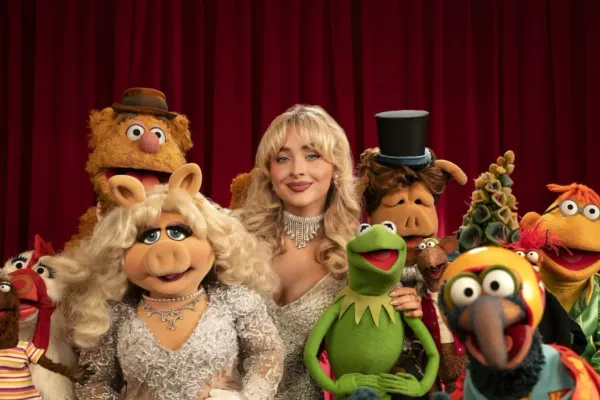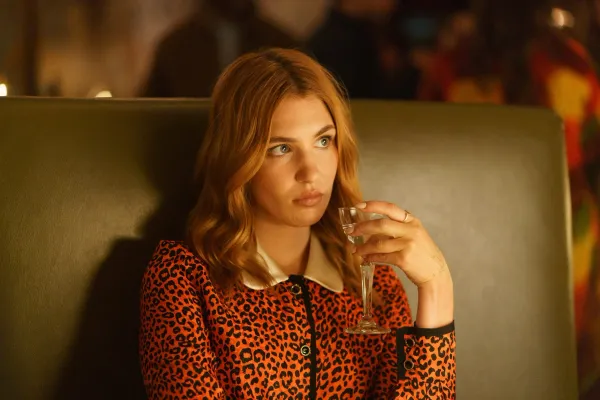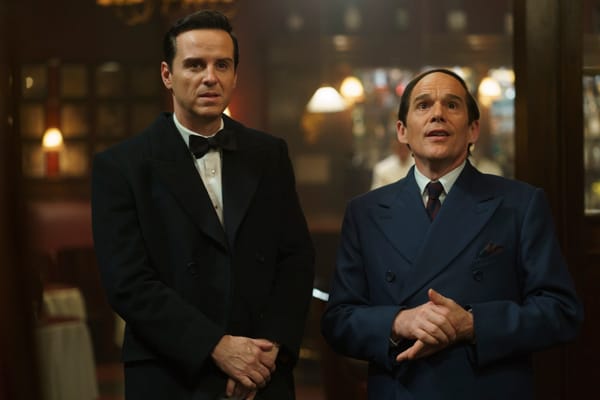Life during wartime
On Tolstoy, Talking Heads, and slow-motion tragedy
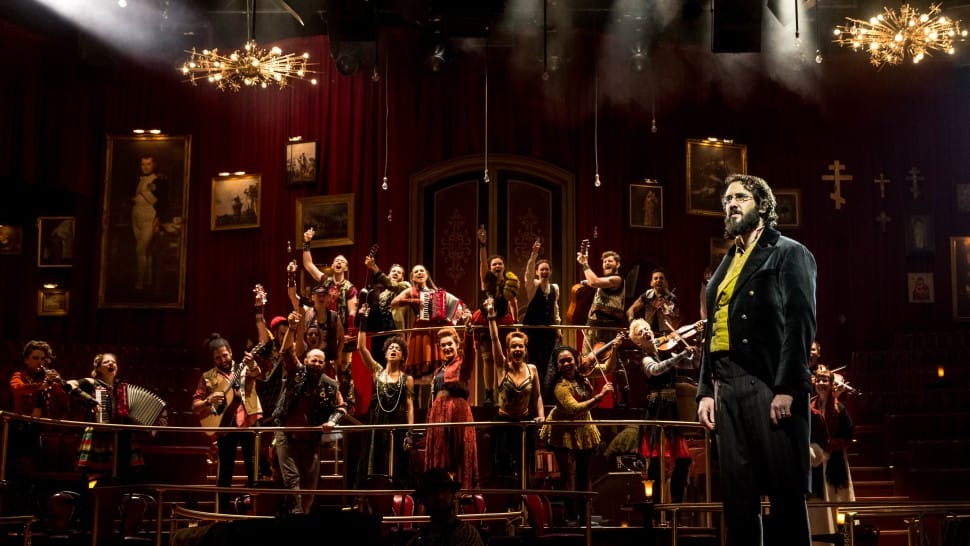
It's dawned on me suddenly
And for no obvious reason
That I can't go on
Living as I am
The zest of life has vanished
Only the skeleton remains
Unexpectedly vile
I used to be better
I used to be better
I used to be better — “Pierre” by Dave Malloy from the musical Natasha, Pierre, and the Great Comet of 1812
For some reason, the fact that I can’t buy chicken is what gets me.
It’s Thursday night at Ralph’s, and there’s a dull, throbbing panic running through the whole city. Something has gone wrong. Reality has ruptured. Whatever we once were, we’re about to be something else. It’s scary and also maybe a little exciting. There’s no going back from this moment.
What it reminds me of is the night of September 11, 2001, when my then-girlfriend (now wife) and I went to a nearby town to fill up, because all of the gas stations in our college town had lies stretching down the street. (Out in rural South Dakota, the easiest conception we had of what change in the wake of massive terrorist attacks was that gas prices might go up, and there were runs on nearly every station.) Here, too, there are long lines of people, just waiting to pay. And here, too, tempers run short.
My wife pulls a plastic bag meant to hold vegetables out of a dispenser and wraps it around the handle of the cart she pushes. I had to wait patiently for that cart out in the parking lot, stalking a shopper taking her groceries to her SUV, swiping the cart before anybody else could get it. I have never seen this Ralph’s this full, not even the time I came here the day before Thanksgiving.
It does not seem likely the plastic bag around the cart handle will save us. If we are going to get sick, my wife says, we are going to get sick. It is just one of those things that happens when you live in a major city. We are lucky to be young enough that we will likely survive if we get ill. Still we stay home from that moment on, locking ourselves away from the world, as so many of our friends — and basically none of our parents — have done.
But there’s a Christmas Eve giddiness to this store, too. Everything is about to change. We are about to go on holiday from reality, from work, from our lives. Everything we care about is going to be put on ice and stored away, and maybe when we come back to it (in May, or June, or…..) we will still care. Or maybe we won’t. What is about to happen is an interregnum. I am not scared because I am not looking at it too closely. When I start to get scared is when I reach out to friends to make sure they are not getting scared.
But it’s when I can’t get chicken that it hits me that this is real. Something is ending, and something new is beginning. We wrap a plastic bag around that something new, whatever it may be, and we hang on.

In Dave Malloy’s musical Natasha, Pierre, and the Great Comet of 1812, the characters and lyrics are largely those of Leo Tolstoy, taken from a small snippet of War and Peace, the novelist’s masterwork. The section that Malloy adapted into his musical is around 80 pages long in my edition of the book, and it is ultimately a small part of the story’s rising action.
In the musical, as in the book, the girl Natasha, promised to Andrey, who is off warring with Napoleon, falls in love with another man, named Anatole. She breaks off her engagement, takes up with Anatole, and creates a scandal that ruins her good name. At the same time, Pierre, a man careening toward death in his 30s, is a washed-up hack who dreams of something better for himself. The two are set on a collision course when Pierre is asked to clean up the whole mess, which concludes with him visiting Natasha in her drawing room, in the wake of what is heavily intimated to be a suicide attempt (at least in my reading). The two have a moment of real, human connection, and Pierre pays Natasha a small kindness that allows her to realize her worth might not be entirely defined by the scandal she has caused.
Pierre rides off into the snowy night, looking up at the great comet of 1812, hovering high above. He reflects that, “The comet was said to portend/ untold horrors/ and the end of the world/ but for me the comet brings no fear/ no I gaze/ joyfully.” The comet, to Pierre, is not a death omen. It is a promise of a new life, if only he can grasp it. (Would you believe the first time I saw this musical, I imprinted hard on Pierre?)
Great Comet journeyed through several off-Broadway venues — including a couple of times when it was staged in a literal tent — on its way to its Broadway debut in November of 2016. (I saw it twice, one off-Broadway and once on Broadway. It remains one of the most emotionally overwhelming works of art I’ve ever seen and the only one I have a tattoo of.) The show was always a critical darling, but the bigger the venue the show was in, the more some critics grumbled that its heart and soul was being replaced by razzle dazzle. The show debuted on Broadway a little under a week after Donald Trump was elected president, and most of the reviews reflect the vague discombobulation many of us still felt at that point, which may be why some of them are so oddly hectoring.
The misalignment of source and style is so severe in Natasha, Pierre — and is now so exaggerated by its Broadway hyperinflation — that it seems like an example of elitist decadence rather than the condemnation of it that Tolstoy intended. Even a redemptive finale can’t fix that, and, anyway, do we believe in redemptive finales anymore?
Green had given the show a more or less positive review in its off-Broadway incarnation, and his arguments against the Broadway production (which he still liked many aspects of) tended toward some combination of “it’s entertaining, but it’s not Tolstoy” and “the glitz and glamour is trying to distract you from the story’s moral center.” To both of these criticisms, I would say “yes.” Also to both of them, I would say, “that’s the point.”
I have a favorite metaphor I like to use for experiencing art. Imagine that you live at one house and the art lives at another. In most cases, you go a little way to the art, and the art goes a little way to you. You meet in the middle at a predetermined location, you both get a coffee, and you have a nice time. Sometimes, the art is so friendly that it comes all the way to your house and does whatever you like. Some people love this sort of art, but I tend to loathe it.
No, what I’m much more fond of is the art that makes me go to it. If I have to go all the way to the art’s house, boy, I’m having a good time. And Great Comet doesn’t just make you go to its house; it keeps throwing obstacles in the way of you getting there, like you’re playing a sadistic game of Paperboy. It is constantly, constantly distracting you from its point, daring you to get caught up in its spectacle, because that’s the only way its conclusion — which is about human connection amid the pomp — will have any weight at all.
By the time you get to Great Comet’s house, you will be expecting an amazing party. You’ll be exhausted and wrung out and ready for more. But when you get there, it’s sitting all alone in an empty room, crying softly. Whether you cross the room to give it a hug or recoil at its sudden, naked sincerity is the divide, roughly, between the Great Comet superfans (such as myself) and those who think it really does do a disservice to its source material. (Suffice to say, Tolstoy would have had no idea what to make of the musical’s over-the-top-ness, to say nothing of all the electro-pop.) But, I mean, if you were someone in tune with their own existential wrongness in 2016, well, this musical might have spoken to you quite a bit. Is all I’m saying.
So I don’t disagree with Green’s criticisms, or anyone’s criticisms, but I do feel like time has more or less borne out the approach that Malloy and director Rachel Chavkin took to this material. You can see if you agree. The cast album captures the entirety of the show, and there are plenty of clips of the staging on YouTube to give you a sense of how it felt to have the entire show swirl out around you throughout the theater.
The thing you can’t know if all you know of War and Peace is this musical is that the entire rest of the novel is about the collapse of the Moscow society this musical takes place in. The characters we are following (and the mostly offstage Andrey) are going to have their lives utterly upended by war, by disaster, by death. Great Comet exists on a precipice, looking out over a great and empty expanse. Everything is about to end.
The characters are distracting themselves — and, by proxy, us — to death.
I’ve been listening to a lot of Talking Heads music lately. I’m not venturing much beyond the established hits, but this is one of those bands where the established hits are really good. A few weeks ago, I got a little stuck on “Life During Wartime,” and I listened to it over and over and over again.
I do this with songs sometimes. I feel like if I listen to them enough times, I might drill through them to some deeper core understanding of the universe or myself. (Usually I’m just working out a problem with something I’m writing, it turns out.) This happens a lot with Talking Heads, though. Their music so often feels to me like it, too, is trying to distract me from something terrible that is coming. Numerous filmmakers have tapped in to this quality in the band, using its music to score particularly menacing sequences.
But there’s another quality to Talking Heads that I love whenever I encounter it in art. The band’s songs so often feel designed to remind you that a lot of what you think of as rigid definitions about what “music” is are entirely arbitrary, if you think about it enough.
This becomes more obvious if you listen to the band’s music in the context of when they were coming up in ‘70s New York. Their intoxicating blend of influences, reaching up onto the shelf and pulling down everything they could find to pour it into their music, stands out amid so much of what else was going on in rock music. (‘70s New York was, of course, also the home to the early punk and hip-hop scenes, so something was in the water.) (Don’t explain the nuances of this to me; this is a high-level survey.) (Also, I’m not a music critic. Like really, really not.)
It is freeing to realize that the laws guiding you, the structures that are keeping you in place, are as arbitrary as anything else humans have dreamed up. It is freeing to realize that your rock songs don’t have to plod forward with the sound of chugging guitars. It is freeing to realize they can sound a little like going to a church service in an abandoned disco.
But it is also terrifying to realize that the structures that hold you in place — that might hold your very life intact — are that arbitrary. It does not take much poking at those structures to create a belief that rigidity is best, that the only things that define us are the iron-clad laws that hold us in place.
I think this is why Talking Heads grabbed hold of me all of a sudden this year, despite a casual fandom for years before that. I think it also might speak to why David Byrne suddenly seems to be everywhere again. We do not have to look very far around us in 2020 to realize that walls are crumbling all over, and they are going to let the waves come crashing down upon our heads. Whatever happens next, it will no longer be this, and that is both terrifying and incredibly freeing. We are going to stay indoors, and then we are going to get to go outside again, and we have no idea how we will no longer be the same.
We sleep in the daytime. We work in the nighttime. We might not ever get home.
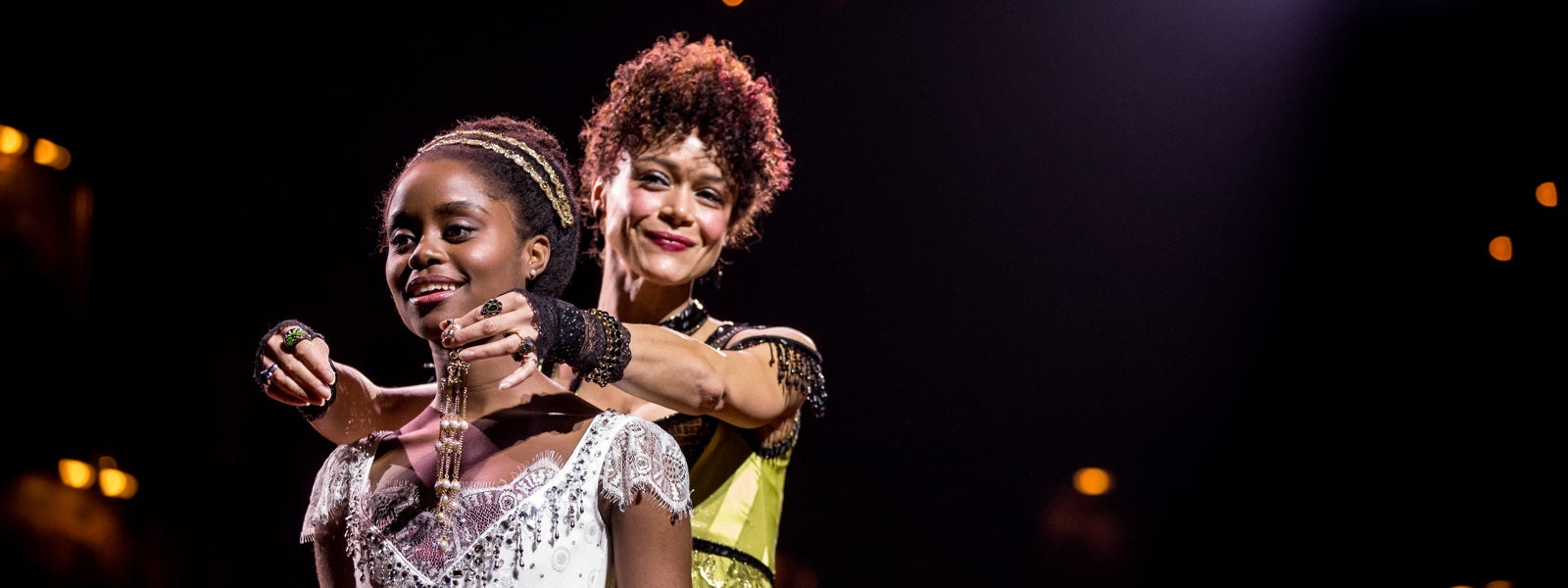
The first time I saw Great Comet — off-Broadway in 2013, in that big-ass tent — I was so overwhelmed by it that I called my wife and left her a message to tell her I needed to talk to her now, now, now, about this show. When she called me a few hours later, I felt so stupid trying to explain to her how I felt about it. The things I wanted to say about it felt buried so deeply inside of me that I might never be able to express them. I just needed her to see the show, and then she might see those things in me, too.
On the one hand, the thing I wanted her to see turned out to be obvious: I was not living the life I wanted to be living. I loved art that treated its core and essential self as a puzzle to be solved, because my core and essential self was a puzzle to be solved. I wanted her to make it all the way to my house, to open the door, and to see me for who I really was. But it’s impossible to have someone immediately guess who you truly are. Even Great Comet ends the show with two whole songs that tell you exactly what you’re supposed to be taking away from all this decadence and distraction.
But the other thing I wanted her to see is only becoming obvious to me now, as I’ve been listening to Great Comet more and more often in the last few weeks. The entirety of my adult life has been what might be defined as “interesting times.” The Clinton impeachment took up much of my high school years, and the 2000 election was early in college. And then September 11, and it’s felt like everything since has been a wild vacillation between distraction and taking a sledgehammer to walls that need to come down.
I’ve been thinking a lot about the generational divide reflected in the exit polling for the 2020 Democratic primary, where those over 45 are going overwhelmingly for Joe Biden and those under 45 are going overwhelmingly for Bernie Sanders (and only more overwhelmingly so the younger you get). This reflects a general sense I have gotten from roughly everyone my age and younger that something has to change, and maybe that something is capitalism? Question mark?
And why wouldn’t we feel this way? Our adult lives have been defined by things breaking and falling apart. They’ve been defined by standing on the precipice and waiting to be sucked down into the spiral. The cultural stereotype of the millennial is someone distracted — by their phone, by their entertainment, by their inability to form the basic tenets of a stable life — but as Great Comet teaches us, distraction is the natural response to living next door to a thing that keeps trying to kill us. All we have known is chaos, so we expect chaos.
But maybe that makes us uniquely well suited for life during wartime. We know that sooner or later, the comet is coming. And everybody’s end of the world is somebody else’s new life.
I got some groceries, some peanut butter
To last a couple of days
But I ain't got no speakers, ain't got no headphones
Ain't got no records to play — “Life During Wartime” by Talking Heads
It’s been four days since my wife and I went to that crowded Ralph’s and stood in line far too close to other people and grabbed food others had fondled all over, and I am starting to think that maybe, somehow, miraculously, we didn’t get sick. And yet I didn’t realize how worried I was that we might have gotten sick until I typed that sentence. Literally this is true. I am too good at distracting myself from all of the things I might be feeling. It’s all I’ve ever known.
And even then, I am acutely aware that I might be an asymptomatic carrier, which means that for the foreseeable future, I am staying in this apartment, filled with distractions as it is. I will do what I am very good at doing, which is watching television and movies and thinking of things to say about them and somehow getting paid to do that.
But somewhere in the back part of my brain, I am worried. I am so worried. I am scared for me. I am scared for my friends. I am scared for my family, even those who do not call me by my name. (I emailed them to try to make sure they were staying home. I still don’t know if they are.) My wife and I talked about going to a movie tonight — one of the last movies before the theaters shut down in Los Angeles — and the thought that I couldn’t just go to a movie or buy chicken at Ralph’s gives me the feeling of impending doom more than anything else. It’s all finally coming unglued. I have been told by plenty of people that this kind of worry is not necessary, because we’ve been through this kind of quarantine before (true! though not in anybody’s living memory!), and I, personally, might not die, and sure. I probably won’t. But what about everybody else?
Somewhere in the past few years, I just started saying, as a way of telling people I loved them, “We’re all we have.” It is not a particularly deep sentiment — you could put it on a bumper sticker — but it feels in keeping with the ideas that Great Comet and Talking Heads circle back to again and again. If you’re not going to care about other people, then what the fuck are you doing on this planet anyway?
As Pierre rides beneath the great comet at the end of Great Comet, he has an epiphany, one that ushers him into a new life. That is where the musical leaves him, but if we read on in War and Peace, it carries him forward through the rest of that long, lumbering novel. For a character who seems to have resigned himself to waiting out the clock until he dies, the great comet serves as a profound dividing point in his life. When he wanted to die, he couldn’t. Now that he has his life, he finally expects to die.
Great Comet could never truly be Tolstoy, because it ends at this moment of epiphany and does not rattle forward through the 600-odd pages that follow. But I think it spoke so deeply to me because I, too, knew that to find my own epiphany would require looking beyond the things distracting me from my life. And now that I do have that life, I’m petrified of losing it.
But I read stories like this, and I think… what happens when all you know are distractions? What happens when you were given these distractions not as a way to avoid a world that kept trying to kill you but to avoid the gnawing sense of something dishonest and wrong, a sense of responsibility deferred and a life’s potential unlived? What happens when you want so badly to die that you can’t see death beating down the door?
What I’ve been up to: Ur girl is publishing again! Check me out on religious responses to coronavirus (a story that is now already woefully out of date, given how many churches have shut down services, but is, I think, still well reported and written) and interviewing the Westworld showrunners about all manner of wacky things. And my favorite thing I wrote was this cheeky piece on why you should play the board game Pandemic that attempted to never, ever mention the elephant in the room. I think it’s funny!
A programming note: As the global pandemic continues and as more of us stay inside for long periods of time, I’m going to be writing a few more newsletters than I normally would, to hopefully give you something to read that isn’t just about disease. Starting sometime this week, I’m going to begin recapping the series Babylon Berlin, available on Netflix, two episodes at a time. I’ve never seen it, and I’m looking forward to it! Please join me. (And, as always, smash those like and share buttons, because they get me “Internet points,” whatever those are.)
Read me: Hey, if you are still figuring out this whole coronavirus/Covid-19 situation, well, have I got a website for you! My Vox colleagues are kicking ass at explaining this disease in ways that are non-alarmist while still conveying to you the severity of what’s happening and why you should probably be reading this at home if it’s at all possible. Check out all of our coverage, but I particularly loved this piece by Ezra Klein on the impending “social recession” as our self-imposed isolation spreads loneliness and disconnection.
A tension in the coronavirus response is that it’s so difficult to get people to accept social distancing that few want to muddle the message with worries about social isolation. But if the ultimate concern is the health and well-being of the most vulnerable, then both dangers need to be addressed.
“We’re now officially in a pandemic,” says Eric Klinenberg, a New York University sociologist who has studied the way social isolation leaves older Americans vulnerable in emergencies. “But we’ve also entered a new period of social pain. There’s going to be a level of social suffering related to isolation and the cost of social distancing that very few people are discussing yet.”
Congress and the administration are, even now, debating the best tools to deploy in fighting the coronavirus’s economic effects. Washington is deep in a debate over payroll tax cuts, industry bailouts, and paid sick leave. But there are fewer policy tools to fight a social recession. What all the experts I spoke to agreed on was this: Just as it’s incumbent on those of us least affected by coronavirus to take precautions to limit its spread, it’s also important that we reach out to limit its social damage.
And there’s good stuff throughout the Vox Media family of #brands, like over at Eater and at The Verge and at Vulture. Read it all!
Watch me: People keep asking me what to watch as they’re waiting out the virus, and my go-to suggestion has been the tech drama Halt and Catch Fire. It’s 40 episodes long, it’s about people trying to work together (and sometimes failing), and it leaves you with a sense of optimism that we could badly use right now. I’m probably going to write more about why this show is so special to me at Vox, so I’ll stop there. But here’s a tribute I wrote to it when it ended in 2017. The entire series is available on Netflix.
And another thing… If you’re not watching the Happy Jacks RPG crew (including yours truly) play the teen superhero game Masks, then you’re missing out on a truly involving and fun story, featuring some characters I’ve come to love. Our finale is airing this Wednesday, so you have just enough time to get caught up on our shenanigans and understand why I’m going to be sad to say goodbye to Katy Kidd, aka The Klipspringer.
This week’s reading music: “Prologue” from Natasha, Pierre, and the Great Comet of 1812
Episodes is published once per week and is about whatever I feel like that particular week. Suggest topics for future installments via email or on Twitter. Read more of my work at Vox

